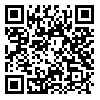Volume 17, Issue 3 (Autumn 2022)
Salmand: Iranian Journal of Ageing 2022, 17(3): 352-365 |
Back to browse issues page
Download citation:
BibTeX | RIS | EndNote | Medlars | ProCite | Reference Manager | RefWorks
Send citation to:



BibTeX | RIS | EndNote | Medlars | ProCite | Reference Manager | RefWorks
Send citation to:
Solhi M, Abolghasemi J, Gholami F. Relationship Between Individual Factors of Empowerment and General Health in Older Adults Attending Neighborhood Houses in Tehran, Iran. Salmand: Iranian Journal of Ageing 2022; 17 (3) :352-365
URL: http://salmandj.uswr.ac.ir/article-1-2236-en.html
URL: http://salmandj.uswr.ac.ir/article-1-2236-en.html
1- Department of Health Promotion and Education, School of Health, Iran University of Medical Sciences, Tehran, Iran.
2- Department of Biostatistics, School of Health, Iran University of Medical Sciences, Tehran, Iran.
3- Department of Health Promotion and Education, School of Health, Iran University of Medical Sciences, Tehran, Iran. ,f.qlm@gmail.com
2- Department of Biostatistics, School of Health, Iran University of Medical Sciences, Tehran, Iran.
3- Department of Health Promotion and Education, School of Health, Iran University of Medical Sciences, Tehran, Iran. ,
Abstract: (4324 Views)
Objectives: By the rapid growth of the elderly population, the need to pay attention to this group becomes more obvious. General self-efficacy, self-control and self-esteem are the effective individual factors for the empowerment of the elderly. This study aims to examine the relationship between these individual aspects of empowerment and general health in older adults attending neighborhood houses in Tehran, Iran.
Methods & Materials: In this descriptive-analytical study with cross-sectional study design, 320 older men and women over 60 years of age participated who were selected by a cluster sampling method. Data were collected using a demographic form, the 28-item general health questionaire, 10-item general self-efficacy scale, Rosenberg self-esteem scale, and Tangney’s brief self-control scale. Data was described using mean and standard deviation, and analyzed using chi-square test, Spearman correlation test, one-way-ANOVA, and linear regression in SPSS sofwtare, version 22.
Results: The mean age of the elderly was 68.42±8.3 years. Their mean score of general health was 21.95±13.4. A significant negative correlation was found between general health, general self-efficacy, self-esteem and self-control (P<0.001). Their general health had a significant relationship with their educational level (P<0.001), years of employment (P=0.002) and housing status (P<0.001). The multivariate regression results showed that housing status (P=0.156), self-esteem (P<0.001), self-control (P<0.001), and general self-efficacy (P<0.001) were the significant predictors of general health in the elderly.
Conclusion: There is a relationship between general health, general self-efficacy, self-esteem, and self-control of the elderly in Tehran. Their general health is related to their educational level, years of employment, and housing status. Housing status, self-esteem, self-control and general self-efficacy are predictors of their general health. Attention should be paid to these factors in developing health promotion programs for the elderly.
Methods & Materials: In this descriptive-analytical study with cross-sectional study design, 320 older men and women over 60 years of age participated who were selected by a cluster sampling method. Data were collected using a demographic form, the 28-item general health questionaire, 10-item general self-efficacy scale, Rosenberg self-esteem scale, and Tangney’s brief self-control scale. Data was described using mean and standard deviation, and analyzed using chi-square test, Spearman correlation test, one-way-ANOVA, and linear regression in SPSS sofwtare, version 22.
Results: The mean age of the elderly was 68.42±8.3 years. Their mean score of general health was 21.95±13.4. A significant negative correlation was found between general health, general self-efficacy, self-esteem and self-control (P<0.001). Their general health had a significant relationship with their educational level (P<0.001), years of employment (P=0.002) and housing status (P<0.001). The multivariate regression results showed that housing status (P=0.156), self-esteem (P<0.001), self-control (P<0.001), and general self-efficacy (P<0.001) were the significant predictors of general health in the elderly.
Conclusion: There is a relationship between general health, general self-efficacy, self-esteem, and self-control of the elderly in Tehran. Their general health is related to their educational level, years of employment, and housing status. Housing status, self-esteem, self-control and general self-efficacy are predictors of their general health. Attention should be paid to these factors in developing health promotion programs for the elderly.
Type of Study: Research |
Subject:
General
Received: 2021/05/20 | Accepted: 2021/10/27 | Published: 2022/10/11
Received: 2021/05/20 | Accepted: 2021/10/27 | Published: 2022/10/11
Send email to the article author
| Rights and permissions | |
 |
This work is licensed under a Creative Commons Attribution-NonCommercial 4.0 International License. |








